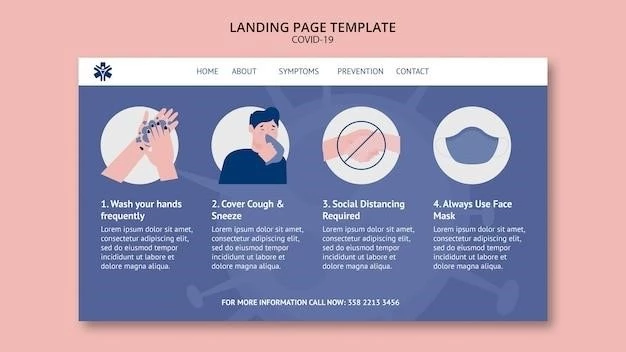Linear Nevus Syndrome
Linear Nevus Syndrome is a rare condition characterized by skin and other abnormalities. This article provides a comprehensive overview of the disease, including symptoms, diagnosis, genetics, complications, medical management, and prognosis.
Overview of Linear Nevus Syndrome
Linear Nevus Syndrome is a rare genetic disorder characterized by the presence of linear skin lesions, congenital abnormalities, and developmental delays. Individuals with this syndrome may experience a range of symptoms including growth retardation, seizures, intellectual disability, and eye abnormalities. Diagnosis is based on clinical evaluation, imaging studies, and genetic testing. The condition is caused by postzygotic mutations in genes involved in embryonic development. Complications of Linear Nevus Syndrome include medical issues related to the skin lesions, growth abnormalities, and neurological manifestations. Medical management focuses on symptom control, supportive care, and multidisciplinary interventions to address the various challenges faced by affected individuals. The prognosis for individuals with Linear Nevus Syndrome varies depending on the extent of organ involvement and the presence of complications. Regular follow-up with healthcare providers, early intervention programs, and ongoing monitoring are essential for optimizing outcomes.
Symptoms of Linear Nevus Syndrome
Individuals with Linear Nevus Syndrome may present with a variety of symptoms. Common manifestations include linear skin lesions, hair loss along the affected areas, congenital abnormalities such as skeletal malformations or heart defects, growth retardation, seizures, developmental delays, intellectual disability, and eye abnormalities. The linear nevi are often present at birth or develop in early childhood and may be associated with hyperpigmentation or hypopigmentation. These skin lesions can vary in size, color, and distribution, affecting different parts of the body. Additionally, individuals may experience complications related to the central nervous system, musculoskeletal system, and vision. It is essential for healthcare providers to recognize and address these symptoms promptly to optimize medical management and enhance the overall quality of life for individuals with Linear Nevus Syndrome.
Diagnosis of Linear Nevus Syndrome
Diagnosing Linear Nevus Syndrome involves a comprehensive evaluation by healthcare professionals. The diagnosis is primarily based on the clinical presentation of linear skin lesions, along with associated symptoms such as congenital abnormalities, developmental delays, and seizures. Imaging studies, including ultrasound, MRI, or CT scans, may be utilized to assess the extent of organ involvement. Genetic testing plays a crucial role in confirming the diagnosis, as Linear Nevus Syndrome is caused by genetic mutations. Molecular testing can identify specific genetic alterations associated with the condition. In some cases, a skin biopsy may be performed to examine the affected tissue under a microscope. It is essential for individuals suspected of having Linear Nevus Syndrome to undergo a thorough diagnostic workup to ensure appropriate medical management and support.
Genetics of Linear Nevus Syndrome
Linear Nevus Syndrome is primarily caused by postzygotic mutations in genes responsible for embryonic development. These mutations occur after fertilization and are not inherited from parents. The genetic alterations lead to the mosaic distribution of affected cells, resulting in the characteristic linear skin lesions and associated abnormalities. One of the commonly implicated genes in this syndrome is the FGFR3 gene٫ which plays a crucial role in cell signaling and growth regulation. Mutations in the FGFR3 gene can disrupt normal development processes٫ contributing to the diverse symptoms observed in Linear Nevus Syndrome. Genetic counseling can help individuals and families understand the genetic basis of the condition٫ assess the risk of recurrence in future pregnancies٫ and make informed decisions regarding family planning. Advances in genetic testing technologies have improved the ability to identify and characterize genetic mutations associated with Linear Nevus Syndrome٫ enabling personalized medical management and genetic monitoring.
Complications of Linear Nevus Syndrome
Individuals with Linear Nevus Syndrome may experience various complications related to the skin, central nervous system, musculoskeletal system, and vision. Complications associated with the skin include recurrent infections, pruritus, and the risk of malignant transformation in the affected areas. Neurological complications such as seizures, developmental delays, and intellectual disability can impact cognitive function and quality of life. Musculoskeletal abnormalities may lead to functional limitations and require multidisciplinary interventions for supportive care and rehabilitation. Eye abnormalities associated with the syndrome can affect vision and necessitate regular ophthalmologic evaluations. It is important for healthcare providers to be vigilant for potential complications and provide comprehensive care to address the diverse medical needs of individuals with Linear Nevus Syndrome.

Medical Management of Linear Nevus Syndrome
The medical management of Linear Nevus Syndrome focuses on addressing symptoms, managing complications, and optimizing the overall well-being of individuals with the condition. Treatment strategies may include dermatologic interventions for skin lesions, anticonvulsant medications for seizures, early intervention programs for developmental delays, and supportive therapies for growth retardation. Regular monitoring by healthcare professionals is essential to track disease progression, manage symptoms effectively, and adjust treatment plans as needed. Multidisciplinary care involving dermatologists, neurologists, geneticists, developmental specialists, and other healthcare providers is key to providing comprehensive support to individuals with Linear Nevus Syndrome. Genetic counseling can aid in understanding the genetic basis of the condition and guiding medical decision-making. Collaborating with a team of specialists can help optimize medical management and improve the quality of life for individuals affected by Linear Nevus Syndrome.
Prognosis for Individuals with Linear Nevus Syndrome
The prognosis for individuals with Linear Nevus Syndrome can vary depending on the extent of organ involvement, the presence of complications, and the effectiveness of medical management. Timely diagnosis, early intervention, and ongoing monitoring can significantly impact outcomes and quality of life. While some individuals may experience challenges related to skin lesions, developmental delays, and neurological symptoms, others may have milder manifestations and lead relatively normal lives with appropriate support and care. Regular follow-up appointments with healthcare providers, adherence to treatment plans, and access to supportive services are crucial for optimizing long-term prognosis. By collaborating with a team of specialists, individuals with Linear Nevus Syndrome can receive tailored medical care, address potential complications proactively, and enhance their overall well-being. Genetic monitoring and counseling may also play a role in managing the condition and providing valuable insights for individuals and families affected by Linear Nevus Syndrome.
Conclusion
In conclusion, Linear Nevus Syndrome is a complex genetic disorder characterized by skin lesions, congenital abnormalities, and various developmental challenges. The condition requires a multidisciplinary approach to medical management, involving dermatologists, neurologists, geneticists, and other specialists. Timely diagnosis, tailored interventions, and ongoing monitoring are essential for optimizing outcomes and enhancing the quality of life for individuals with Linear Nevus Syndrome. Genetic counseling can provide valuable information regarding the genetic basis of the condition and assist in making informed healthcare decisions. By fostering collaboration among healthcare professionals and providing holistic care, individuals with Linear Nevus Syndrome can receive the support they need to manage symptoms, address complications, and navigate the complexities of the condition; Continued research and advancements in medical technologies offer hope for improved therapeutic interventions and better prognoses for those affected by Linear Nevus Syndrome.
